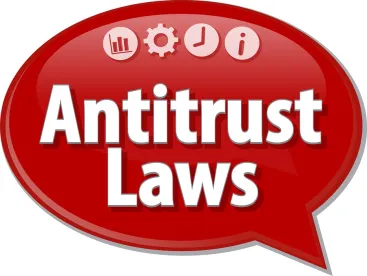China
SAMR issues series of fines for failure to pre-file notice of market concentration
The State Administration for Market Regulation’s (SAMR) recent enforcement actions have focused on two aspects of antitrust law. The first is the PRC Anti-monopoly Law’s (AML) requirement that business operators must first submit a filing to SAMR prior to implementing a concentration that exceeds relevant market thresholds. On April 28, 2021, SAMR issued administrative fines against several companies for failing to submit the necessary filings prior to engaging in a notifiable business concentration. This is in addition to SAMR penalizing dozens of companies the previous month for the same infraction. The maximum penalty currently allowed for unreported business concentrations is 500,000 RMB (approx. 77,000 USD). SAMR’s actions indicate a renewed emphasis on pre-concentration filing compliance.
SAMR restrains exclusive dealing arrangements by companies with a dominant market share
The second focus of the SAMR’s recent enforcement is the AML’s Article 17, which prohibits entities with dominant market positions from pursuing exclusive dealing arrangements with business partners without justifiable business reasons. SAMR’s enforcement activities include not only imposing administrative fines but also requiring companies to implement structural remedies to prevent future antitrust violations, as well as enhance internal compliance mechanisms and submit self-inspection reports to the SAMR for a specific time.
While China’s recent antitrust enforcement has mostly focused on domestic entities, the actions contain lessons for foreign and multinational companies doing business in China and may illuminate China’s enforcement priorities in other industries. Companies with substantial Chinese market presence should carefully review practices implicating exclusive dealing arrangements as well as carefully consider whether a SAMR filing is needed prior to engaging in a business concentration.\
Japan
The JFTC conducts on-site investigations of four electric power companies on suspicion of cartel
On April 13, 2021, the Japan Fair Trade Commission (JFTC) conducted on-site investigations against four electric companies, including three major Japanese electric companies. This is the first time the JFTC has investigated cartel charges against major power companies.
In 1995, in response to criticism that electricity prices were too high in Japan, the government started liberalizing electricity sales, and fully liberalized in 2016. As a result, major electric companies are now in danger of losing customer share and seeing prices plummet. It has been reported that the four electric companies are suspected to have agreed to limit new sales to each other and have restricted the acquisition of customers beyond their own area.
Algorithms/AI and competition policy in Japan
With the development of digitalization and e-commerce, some firms use algorithms to collect information about competitors’ prices and to automatically set their prices. On March 31, 2021, the JFTC released the report “Algorithms/AI and Competition Policy” (“Report”), which discusses issues and challenges regarding algorithms and AI competition policy in Japan. The main purpose is to enable JTFC to adequately address algorithm/AI-related competitive risks.
The use of algorithms may promote price competition, but there is a concern that they may lead to concerted price settings. For example, some firms have provided various services using ranking. A firm may interfere with transactions between its competitors and their customers by manipulating the order of the ranking it provides to have its own products placed higher in the ranking. The ranking position can be important for competition, and possible ways for JFTC to verify the operation of the algorithm were discussed in the Report. According to the Report, strict action should be taken against businesses that restrict competition by arbitrarily operating algorithms, and the JFTC may well address the issue in the future.







 />i
/>i
